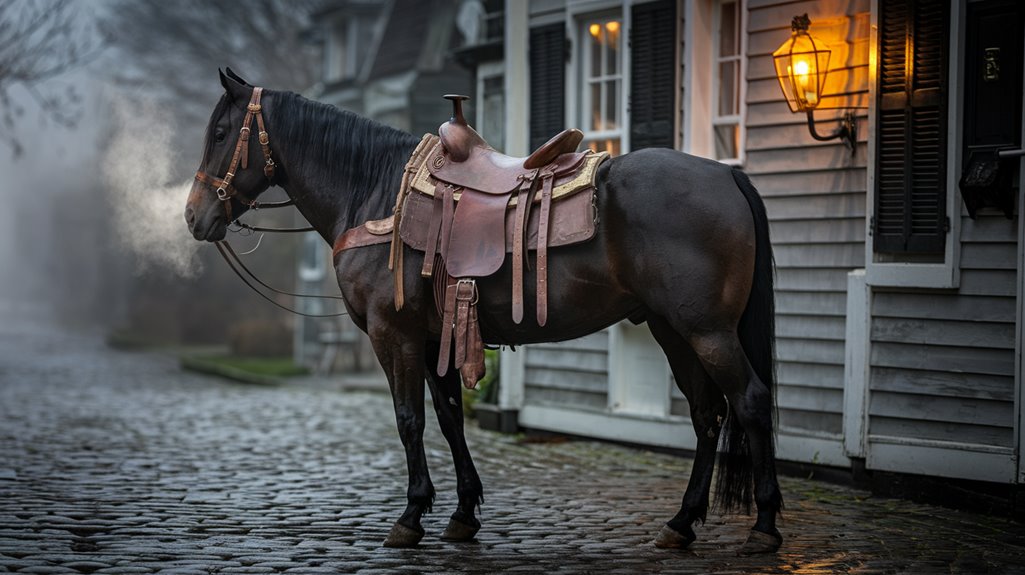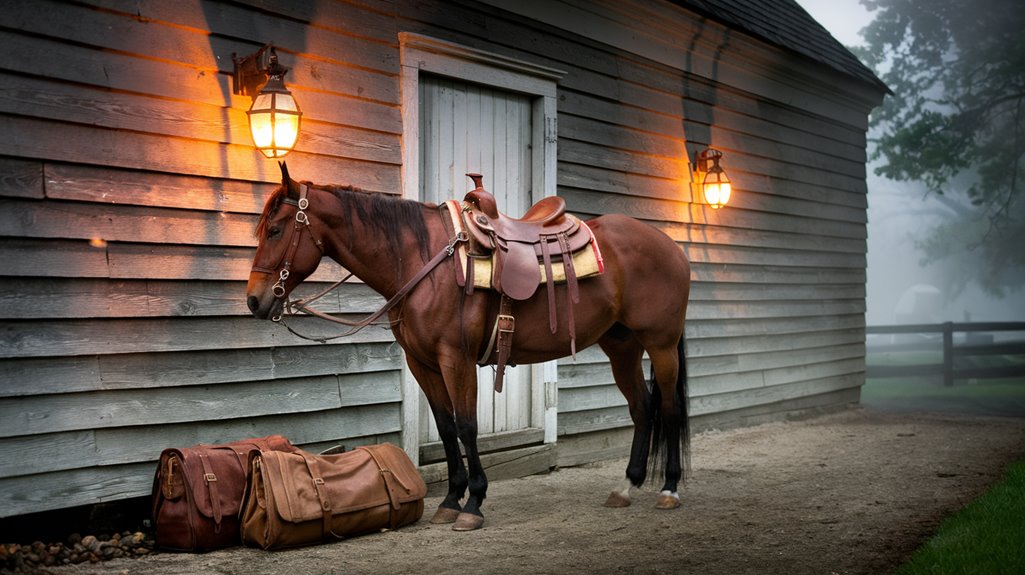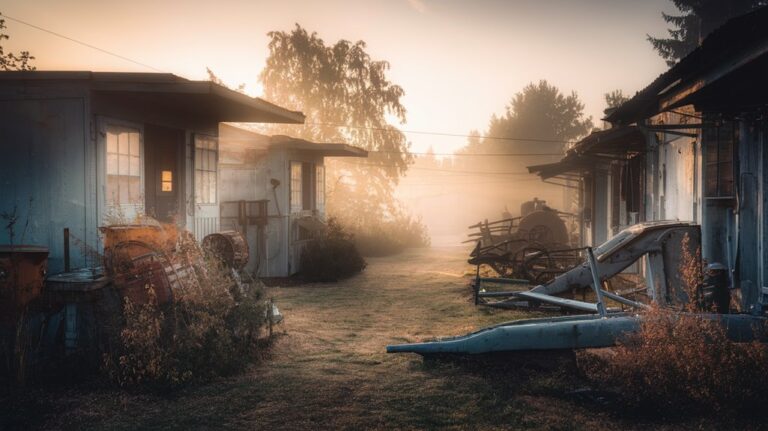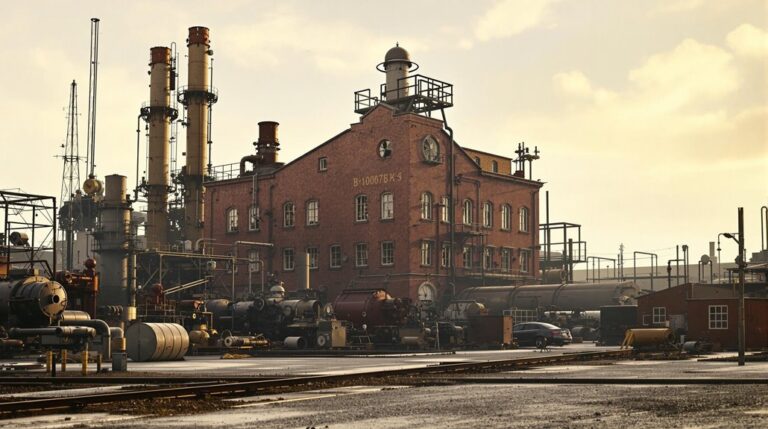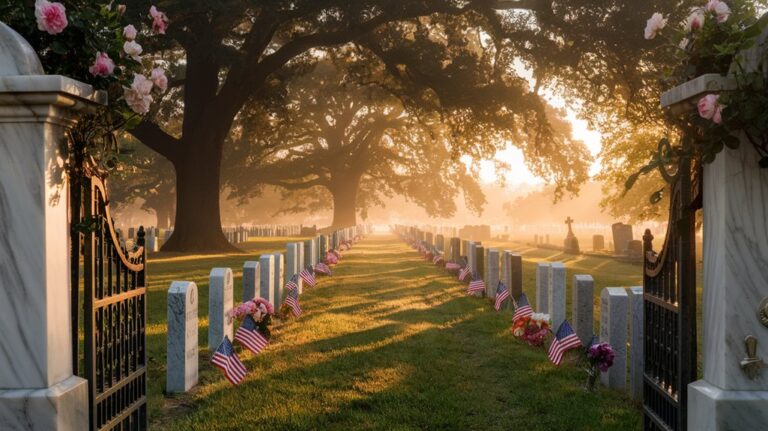Paul Revere’s Famous Ride Didn’t Include Shouting Warnings
You've probably heard the tale of Paul Revere galloping through the night, shouting "The British are coming!" at the top of his lungs. But here's the thing – that's not how it happened. The real story involves a sophisticated network of colonial messengers who worked in secret to avoid detection. What you don't know about this pivotal moment in American history might surprise you, and it's time to separate the compelling truth from the popular myth.
The Truth Behind Paul Revere's Warning Method
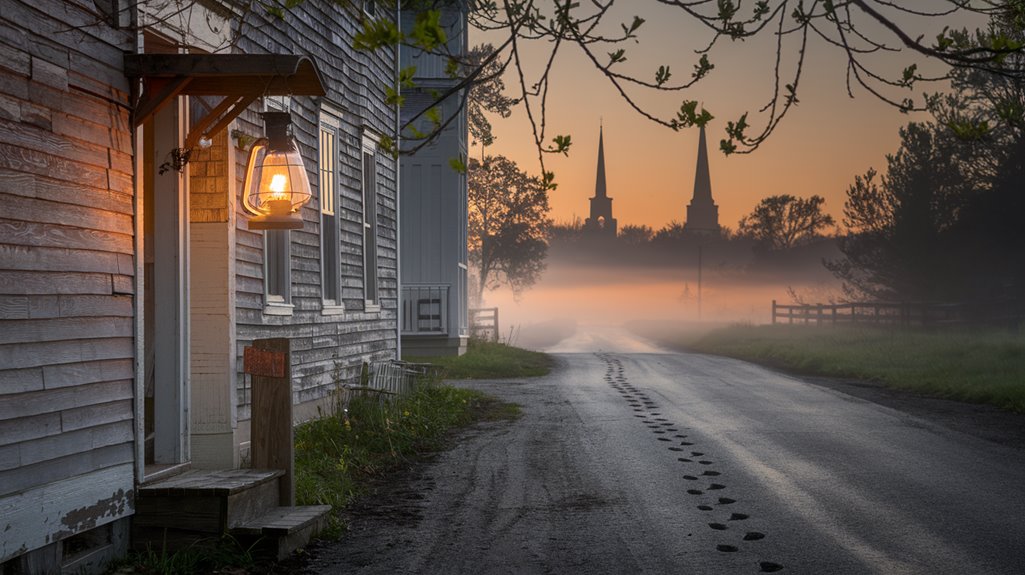
While many Americans envision Paul Revere galloping through the streets shouting "The British are coming!", the true warning method was far more strategic and discreet.
You'll be surprised to learn that Revere's actual warning system relied heavily on a lantern signal from Boston's Old North Church, where Robert Newman hung two lanterns to indicate the British approach by sea.
Rather than shouting alerts, Revere made discreet notifications by stopping at specific houses to warn trusted associates, using the phrase "The Regulars are coming out." The trusted messenger role had been cultivated through his experience delivering vital communications between Boston, New York, and Philadelphia since 1774.
This careful approach helped him avoid detection by British patrols in the countryside. The lantern signal served as a vital backup plan to warn colonists in Charlestown if Revere was captured during his mission to alert John Hancock and Samuel Adams in Lexington. During his journey that night, Revere covered twelve and a half miles on horseback through the Massachusetts countryside.
How Colonial Communication Networks Really Worked
Paul Revere's strategic warning system exemplified just one piece of the complex communication networks that shaped colonial America.
You'd be surprised to learn that the colonies operated without a regular mail system, relying instead on personal courier systems and trade connections to spread essential information.
Water routes served as the primary arteries of colonial communication, while Indian-controlled trails connected inland communities.
The lack of printing presses meant that most information traveled through personal networks and oral communication.
The Sons of Liberty maintained vigilant surveillance over British military movements, demonstrating how organized these networks could be.
You'll find that these information networks weren't just about spreading news – they were indispensable tools of power and authority.
When colonists needed to share important messages, they'd utilize a combination of coastal shipping, river navigation, and individual messengers, creating an intricate web of communication that kept colonial America connected.
Influential individuals like female leader Pamini strategically shared critical information about rival colonies to maintain power and secure protection for their communities.
Separating Historical Fact From Literary Legend
Although Henry Wadsworth Longfellow's famous poem captured America's imagination, it strayed considerably from the historical truth of April 18, 1775.
You'll find that Revere never shouted "The British are coming!" nor did he reach Concord as the poem suggests. Instead, he quietly warned that "the Regulars are coming out" before British forces captured him in Lincoln. Historical records show that Revere, under threat, gave information willingly to his British captors.
The mythical narratives created by Longfellow's work overshadow the historical accuracy of what actually happened. Samuel Prescott was the one who actually reached Concord to warn the town.
Rather than a lone hero's midnight ride, you're looking at a well-organized network of colonial messengers who spread the alarm.
While Longfellow wrote his poem to inspire patriotism during the Civil War era, it's vital to recognize that Revere was part of a larger team of riders who collectively achieved this significant mission.

